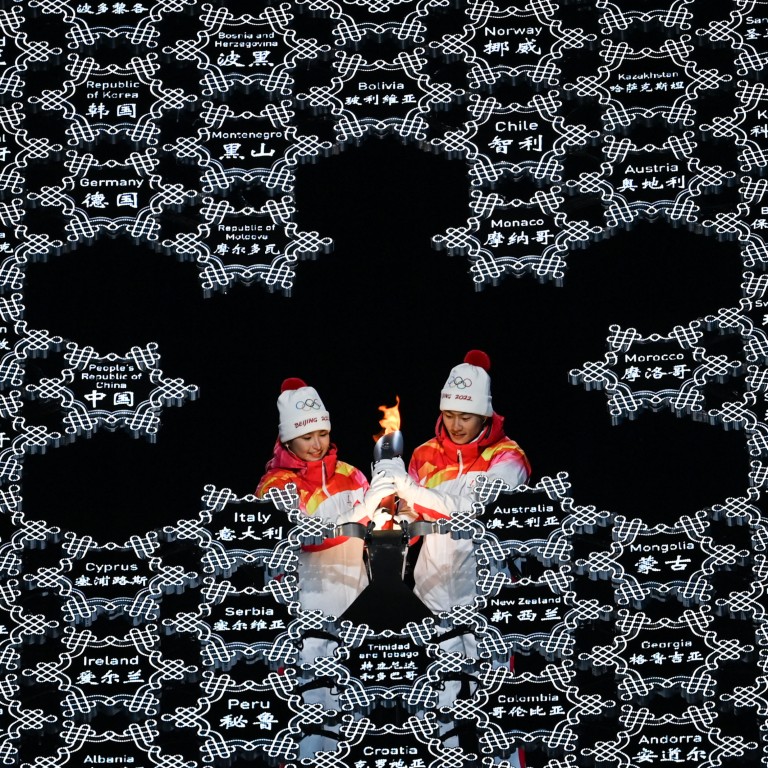
Winter Olympics: IOC says Dinigeer Yilamujiang ethnicity not a factor in her being final torch-bearer at opening ceremony
- International Olympic Committee says the cross-country skier, who is of Uygur descent, was not picked because of where she came from
- There had been speculation that China used her to respond to accusations that it violated human rights of those in Xinjiang
Dinigeer Yilamujiang, a cross-country skier of Uygur descent representing China, was not picked as one of the two final torch-bearers at the opening ceremony of Beijing Winter Games for her ethnicity, the International Olympic Committee, has said.
China’s second Olympic Games opened with Western countries staging diplomatic boycotts because of concerns of China’s human rights records.

IOC spokesperson Mark Adams said Yilamujiang had the right to take part in the ceremony and that the IOC had played a part in the decision, but did not mention specifics.
“Obviously the opening ceremony is something that the organising committee put together and there’s creative input,” he said at a press conference on Saturday. “We are involved to a certain extent.
“This is an athlete who is competing here, she is competing this morning. She has every right, wherever she comes from, whatever her background, to compete … and to take part in any ceremony.”
Emotional Wu lost for words after China’s golden start to Winter Olympics
Games organisers said the final torch-bearers who passed the flame at the stadium were selected based on their year of birth to include Chinese athletes of multiple generations.
Adams said: “I think it was a lovely concept.”
Zumretay Arkin, an Uygur-Canadian advocate and programme manager of World Uygur Congress, an international organisation of exiled Uygurs, criticised China’s arrangement as politically targeted.
“China using an Uygur athlete to light the Olympic torch is THE most politically motivated move, yet the IOC still claims the Games are ‘non-political’,” she said in a tweet.
“By selecting a Uygur athlete to light the torch, China is trying to address criticism by the West about genocide or persecution of the Uygurs, and about sinicisation of ethnic minorities,” he said.
Yilamujiang is from Altay city in Xinjiang. Her father is a cross-country skiing instructor who won bronze in a national cross-country skiing competition in 1993.
Overseas human rights groups have staged protests in multiple cities across the world as the Beijing Winter Olympics opened on Friday.
Hundreds of diasporic Uygurs rallied in Istanbul on Friday, attempting to reach the Chinese embassy before being stopped by the police. Protesters called for a boycott of the Beijing Games.
‘Hong Kong’s handsome flag-bearer’ Chu ‘flustered’ by Chinese fame
Istanbul is home to the largest group of Uygur diaspora in the world.
Chinese embassies in Tokyo, San Francisco, and Munich saw Uygur and Tibetan protesters rallying against Chinese oppression on Uygurs, Tibetans, and Hongkongers.
The lighting of the Olympic cauldron is a tradition in the Olympics. The cauldron is lit at the opening ceremony to signal the beginning of the Games, and extinguished at the closing ceremony.
Additional reporting by Reuters

